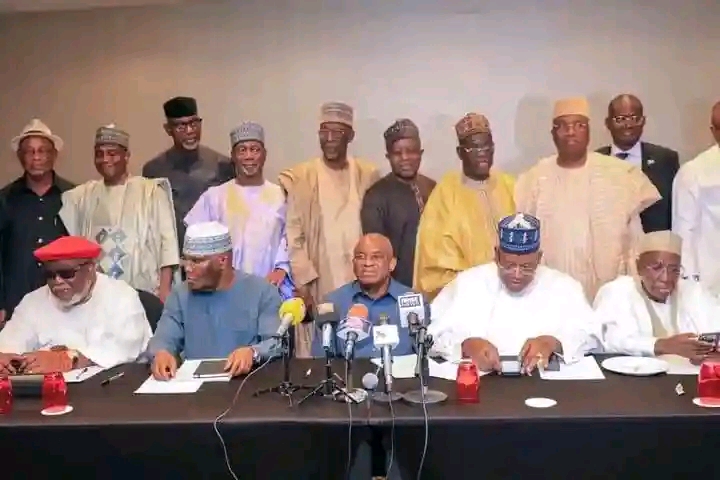News Analysis – By Abdul Lauya
A bold offer by former Labour Party presidential candidate Peter Obi to serve only one term in office if elected president in 2027 has added new complexity, and potential clarity, to Nigeria’s evolving political landscape.
Speaking under the banner of a newly unveiled coalition centred on the African Democratic Congress (ADC), Obi signaled his willingness to be a transitional figure, a bridge between Nigeria’s restive regions and competing power blocs. The offer, he said, is rooted in a desire to respect the country’s unwritten zoning arrangement, which favors rotating the presidency between North and South.
This pledge is already reverberating across Nigeria’s political spectrum. At the ADC coalition’s public unveiling, a cast of prominent political heavyweights, former Vice President Atiku Abubakar, ex-Kaduna Governor Nasir El-Rufai, former Minister of Transport Rotimi Amaechi, and ex-Senate President David Mark, stood alongside Obi, signaling an unprecedented attempt to realign Nigeria’s opposition forces under one roof.
The one-term proposal, viewed as a calculated concession to Northern leaders, is designed to build trust and attract support from regions historically wary of Southern leadership continuity. In practice, it could serve as a unifying compromise: allowing the South to hold power briefly while setting the stage for a Northern return in 2031.
While the plan has been met with cautious optimism, it also raises questions about durability. Coalition politics in Nigeria are notoriously fragile, and this broad alliance will need to maintain unity despite ideological differences, regional suspicions, and lingering personal ambitions. Figures like El-Rufai and Amaechi, known for their own presidential aspirations, may not be content to play supporting roles indefinitely.
Further uncertainty surrounds the identity of Obi’s running mate. Speculation is swirling about the possibility of a joint ticket with Borno State Governor Babagana Zulum, a respected Northern leader. Others suggest that Yusuf Datti Baba-Ahmed, Obi’s 2023 running mate, may step aside for a candidate acceptable to Northern power brokers. Some reports claim Datti could be repositioned as Attorney General or Chief of Staff should the coalition win.
One of the most consequential developments in this unfolding drama is the reported willingness of Atiku Abubakar to step aside. Though unconfirmed, insiders suggest Atiku may support Obi’s candidacy rather than mount a fifth presidential bid, framing his role as that of an elder statesman helping midwife a new political order.
If true, that decision would represent a significant realignment in Nigeria’s political hierarchy and a rare gesture of long-term strategic thinking in a system dominated by short-term calculations.
Despite its momentum, the coalition faces formidable challenges. The ruling All Progressives Congress (APC) remains deeply entrenched, especially in the South-West and parts of the North-West. President Bola Tinubu, though facing mounting public dissatisfaction, retains control of critical state machinery and a loyal political base.
Yet the opposition coalition’s timing and structure are forcing the APC into a more defensive posture. Obi’s one-term pledge has re-centered the political conversation on power rotation, justice, and unity, issues the ruling party may now struggle to ignore.
What remains to be seen is whether this ambitious coalition can translate elite consensus into grassroots mobilization, and whether Nigerians, wearied by broken promises, will trust that a one-term presidency could truly deliver meaningful change.
For advert placement and inquiries, publication of press releases, and news coverages, please call: Phone: 08052898434 Email: editor@eyereporters.com, click here to view the advert rates.



